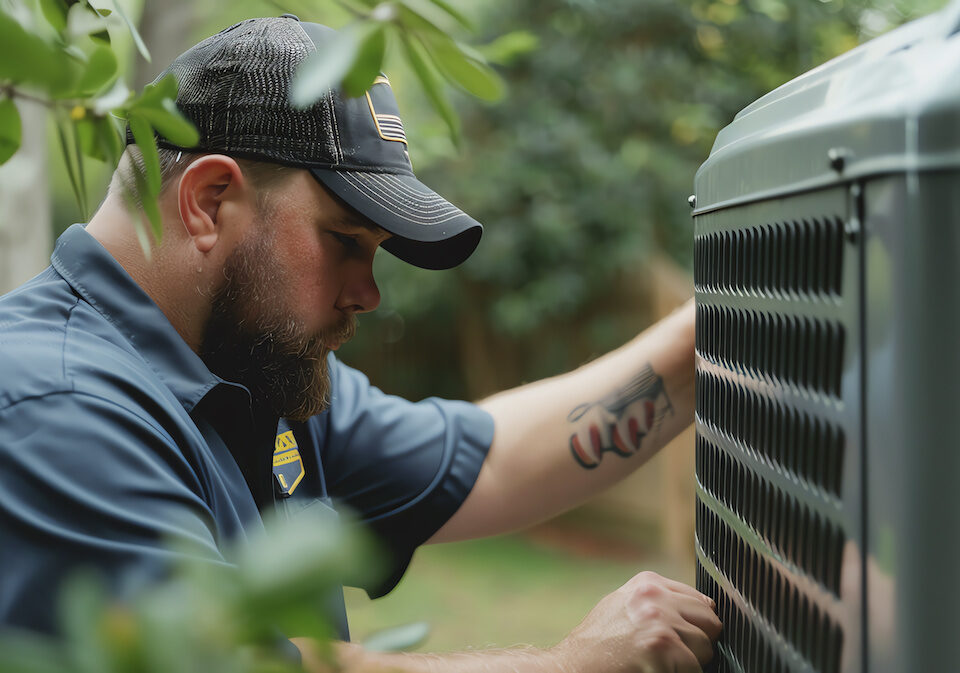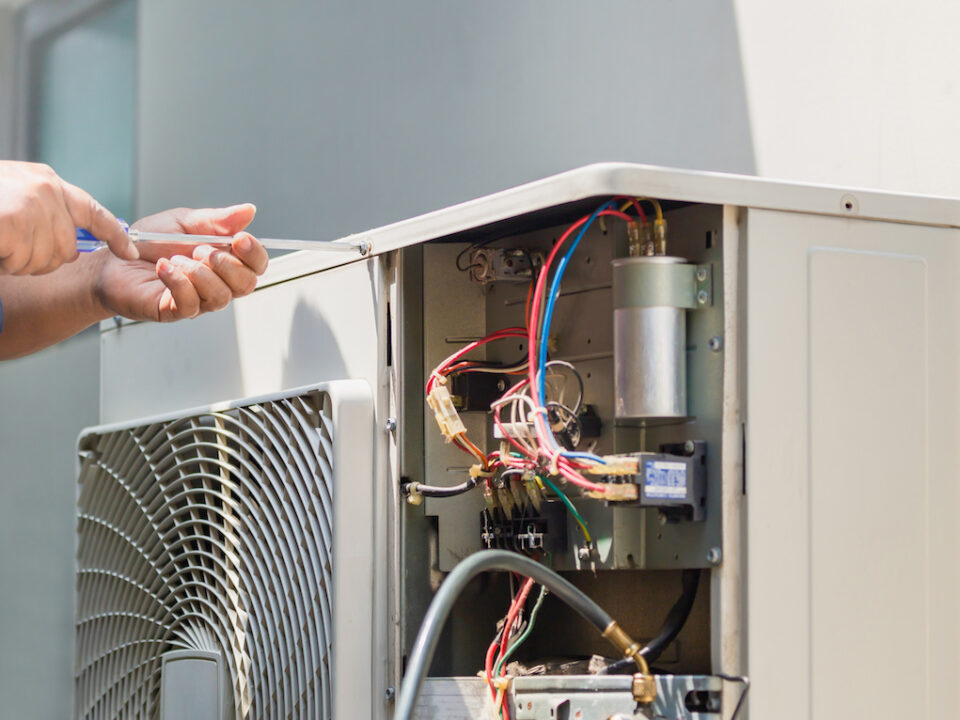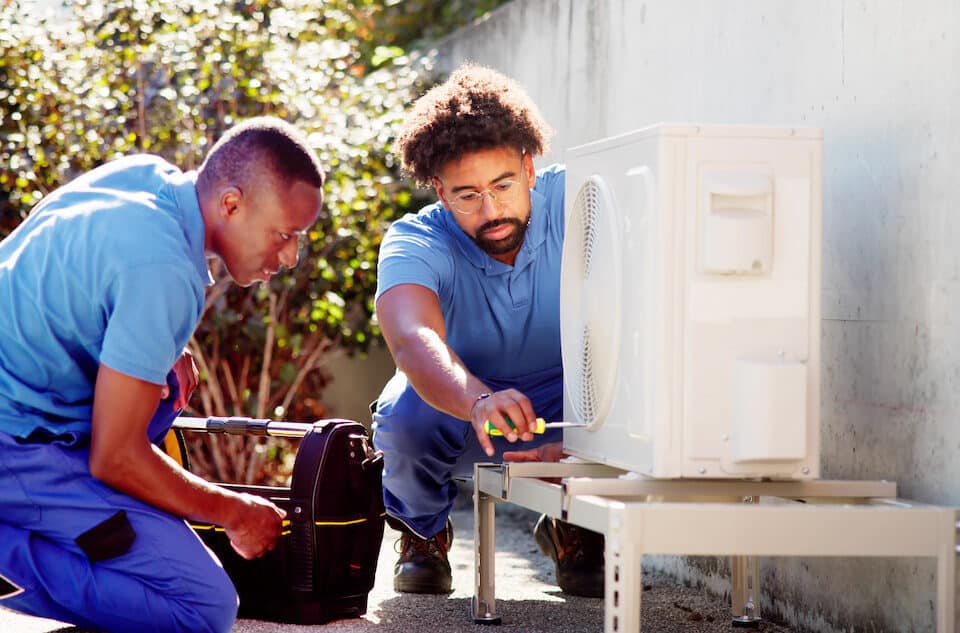Choosing the Right HVAC System for Your Home
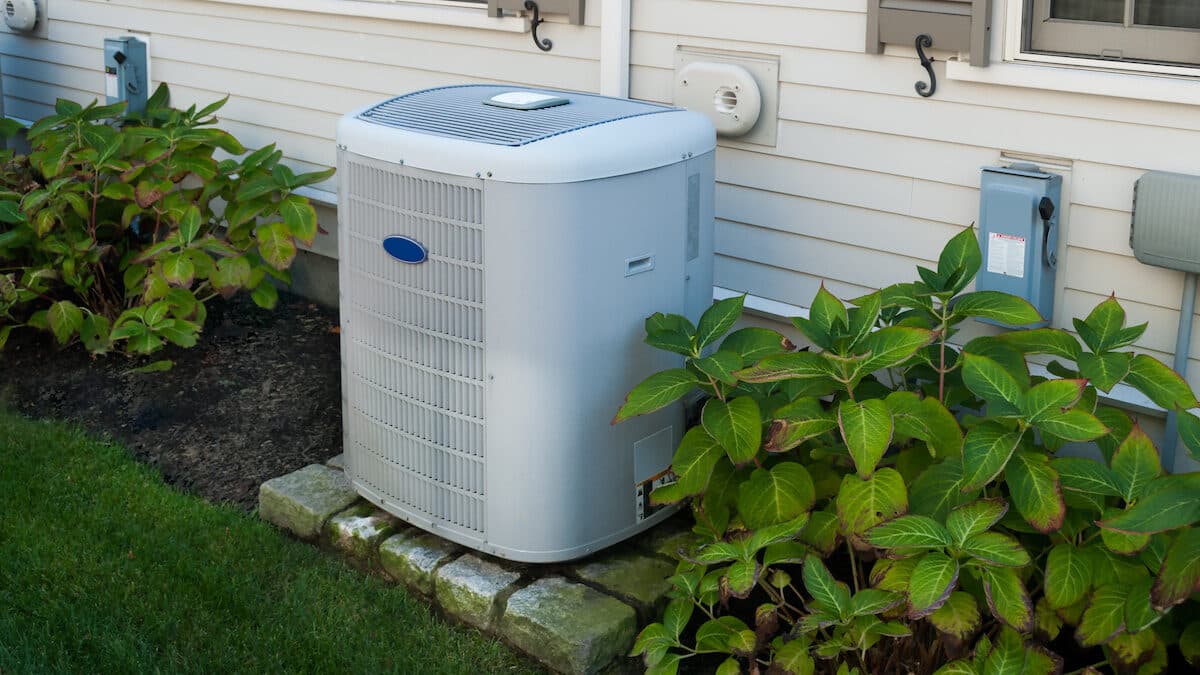
Choosing the right HVAC system for your home is a critical decision that affects your comfort, energy efficiency, and long-term costs.
With numerous options available in the market, understanding the different types of systems, their benefits, and how they align with your specific needs is essential.
At Trust Heating and Air, we aim to provide you with the knowledge and guidance needed to make an informed decision. This blog will cover:
- The various HVAC systems
- Factors to consider when choosing one
- Tips for ensuring you get the best system for your home
Let’s get started!
Types of HVAC Systems
1. Central Air Conditioning and Heating Systems
Central air conditioning and heating systems are among the most common HVAC systems for residential use. They utilize a network of ducts to distribute cool or warm air throughout your home.
Benefits
- Even Temperature Distribution: Ensures consistent temperature throughout the house.
- Efficiency: Modern central systems are highly efficient and can reduce energy consumption when properly maintained.
- Aesthetics: Ducts are hidden within walls and ceilings, maintaining the home’s aesthetics.
Considerations
- Installation Cost: Initial installation can be expensive due to the need for ductwork.
- Space: Requires sufficient space for both indoor and outdoor units.
2. Ductless Mini-Split Systems
Ductless mini-split systems provide both heating and cooling without the need for ductwork. They consist of an outdoor unit connected to one or more indoor units.
Benefits
- Flexibility: Ideal for homes without existing ductwork or for room additions.
- Energy Efficiency: Allows for zoning, which means you can control the temperature in individual rooms, leading to potential energy savings.
- Easy Installation: Simpler installation process compared to central systems.
Considerations
- Cost: While installation is generally less expensive than central systems, the cost can add up if multiple indoor units are needed.
- Aesthetics: Indoor units are visible and may affect room aesthetics.

3. Heat Pumps
Heat pumps are versatile systems that provide both heating and cooling by transferring heat between the indoors and outdoors. There are air-source and ground-source (geothermal) heat pumps.
Benefits
- Energy Efficiency: Highly efficient as they move heat rather than generate it.
- Year-Round Comfort: Provide both heating and cooling from a single unit.
- Environmentally Friendly: Lower carbon footprint compared to traditional heating systems.
Considerations
- Climate Suitability: Air-source heat pumps are less effective in extremely cold climates.
- Installation Cost: Geothermal heat pumps have high initial installation costs due to the need for underground piping.
4. Hybrid Systems
Hybrid HVAC systems combine a heat pump with a furnace, switching between the two depending on the temperature. This ensures optimal energy efficiency.
Benefits
- Efficiency: Utilizes the most efficient method of heating depending on the weather conditions.
- Cost Savings: Reduces energy bills by optimizing fuel usage.
- Environmental Impact: Lower greenhouse gas emissions compared to traditional systems.
Considerations
- Complexity: More complex than single-system setups, which can complicate maintenance and repairs.
- Initial Cost: Higher initial investment due to the need for multiple components.
Factors to Consider When Choosing an HVAC System
1. Home Size and Layout
The size and layout of your home significantly impact the type and size of HVAC system you need.
Key Points:
- Load Calculation: Conduct a load calculation to determine the appropriate system size. Oversized or undersized systems can lead to inefficiency and discomfort.
- Zoning Needs: Consider systems that offer zoning capabilities if different areas of your home have varying heating and cooling needs.
2. Climate
The climate you live in plays a crucial role in determining the best HVAC system for your home.
Key Points:
- Heating Needs: In colder climates, a robust heating system like a furnace or geothermal heat pump is essential.
- Cooling Needs: In warmer climates, efficient air conditioning or a heat pump with strong cooling capabilities is crucial.
- Seasonal Performance: Evaluate how well the system performs in extreme temperatures.
3. Energy Efficiency
Energy efficiency directly affects your utility bills and environmental impact.
Key Points:
- SEER and HSPF Ratings: Look for a high Seasonal Energy Efficiency Ratio (SEER) for cooling and Heating Seasonal Performance Factor (HSPF) for heating.
- Energy Star Certification: Systems with Energy Star certification meet strict energy efficiency guidelines set by the U.S. Environmental Protection Agency.
- Long-Term Savings: Consider the long-term savings on energy bills when evaluating the cost of more efficient systems.
4. Budget
Your budget will influence the type of system you can afford, but it’s important to balance initial costs with long-term savings.
Key Points:
- Installation Costs: Include costs for the system, installation, and any necessary modifications to your home (e.g., ductwork).
- Operating Costs: Factor in monthly energy bills and maintenance costs.
- Financing Options: Explore financing options, rebates, and incentives that can help offset initial costs.
5. Indoor Air Quality
The right HVAC system can significantly improve indoor air quality, which is crucial for your family’s health.
Key Points:
- Filtration: High-efficiency particulate air (HEPA) filters can remove more dust, pollen, and allergens.
- Humidity Control: Systems with dehumidification or humidification capabilities can maintain optimal indoor humidity levels.
- Ventilation: Proper ventilation is essential for reducing indoor pollutants and ensuring a supply of fresh air.
Tips for Choosing the Right HVAC System
1. Consult with Professionals
Professional HVAC contractors have the expertise to assess your home’s specific needs and recommend the best system.
Key Points:
- Load Calculation: Ensure a thorough load calculation is performed.
- System Sizing: Professionals will ensure the system is appropriately sized for your home.
- Installation Quality: Proper installation is critical for system performance and longevity.
2. Consider Long-Term Costs
Evaluating long-term costs helps you understand the true value of your investment.
Key Points:
- Energy Efficiency: Higher upfront costs for energy-efficient systems can result in significant savings over time.
- Maintenance: Regular maintenance can extend the life of your system and prevent costly repairs.
- Warranty: Choose systems with comprehensive warranties to protect your investment.
3. Evaluate System Features
Modern HVAC systems come with various features that can enhance comfort and convenience.
Key Points:
- Smart Thermostats: These allow for precise control and can reduce energy usage through programmable settings.
- Zoning: Systems with zoning capabilities can provide customized comfort and improved efficiency.
- Noise Levels: Consider the noise levels of the system, especially for indoor units.
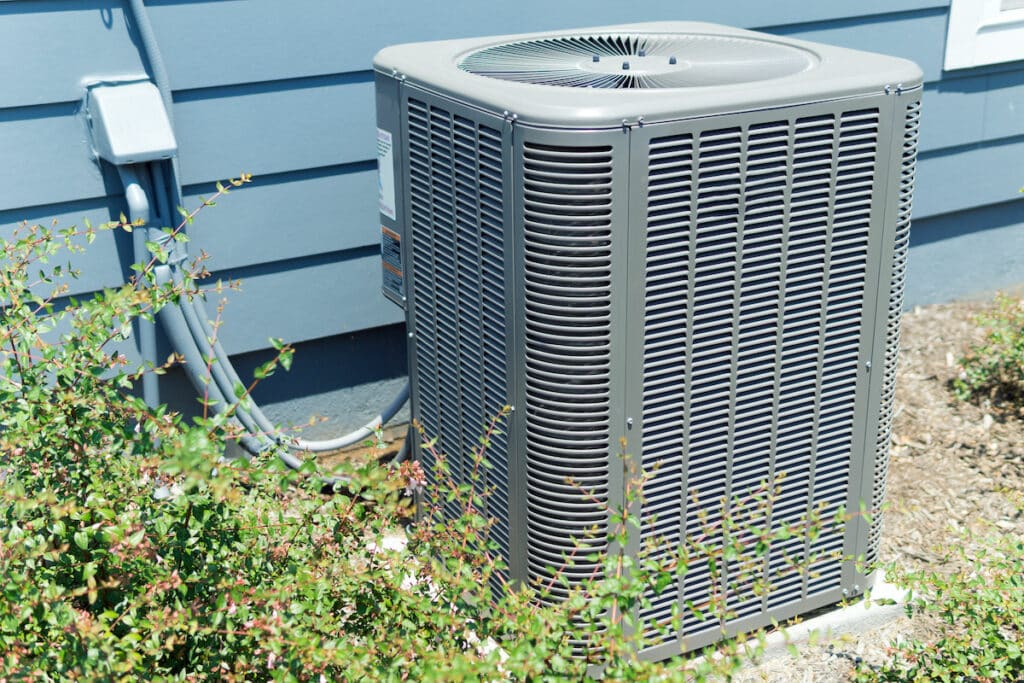
4. Assess the Energy Source Availability
The availability and cost of energy sources in your area can influence your choice of HVAC system and its operating costs.
Key Points:
- Electricity vs. Gas: Determine if natural gas is available in your area and compare the costs and efficiency of gas-powered systems versus electric systems. In some regions, electricity may be cheaper and more reliable, while in others, natural gas might be the more economical choice.
- Renewable Energy: Consider whether you have access to renewable energy sources such as solar or geothermal energy. Geothermal heat pumps, for example, can offer significant long-term savings and environmental benefits but require specific site conditions for installation.
- Hybrid Systems: In areas with variable energy prices, hybrid systems that can switch between different energy sources might provide flexibility and cost savings.
5. Research System Longevity and Reliability
Understanding the lifespan and reliability of different HVAC systems can help you choose a system that will provide consistent performance and durability over time.
Key Points:
- Manufacturer Reputation: Look for systems from reputable manufacturers known for quality and reliability. Read reviews and consult with HVAC professionals to understand which brands have the best track records.
- System Lifespan: Different HVAC systems have varying lifespans. For instance, a well-maintained central air conditioning system typically lasts 15-20 years, while a heat pump might last 10-15 years. Consider the expected lifespan and how it fits with your long-term plans for your home.
- Maintenance Requirements: Some systems require more frequent or complex maintenance. Ensure you understand the maintenance needs and costs associated with each system type and choose one that fits your ability to keep up with these requirements.
- Parts Availability: Ensure that replacement parts are readily available for the system you choose. Systems from well-known manufacturers typically have better parts availability, reducing downtime and inconvenience in case of repairs.
Need Help Choosing the Right HVAC System for Your Home?
Choosing the right HVAC system for your home is a multifaceted decision that requires careful consideration of your specific needs, climate, budget, and long-term goals. By understanding the different types of systems available and the factors that influence their performance, you can make an informed choice that ensures comfort, efficiency, and cost savings for years to come.
At Trust Heating and Air, we are dedicated to helping you find the perfect HVAC solution for your home. Contact us today to schedule a consultation and let our experts guide you through the process of selecting and installing the best HVAC system for your needs.

